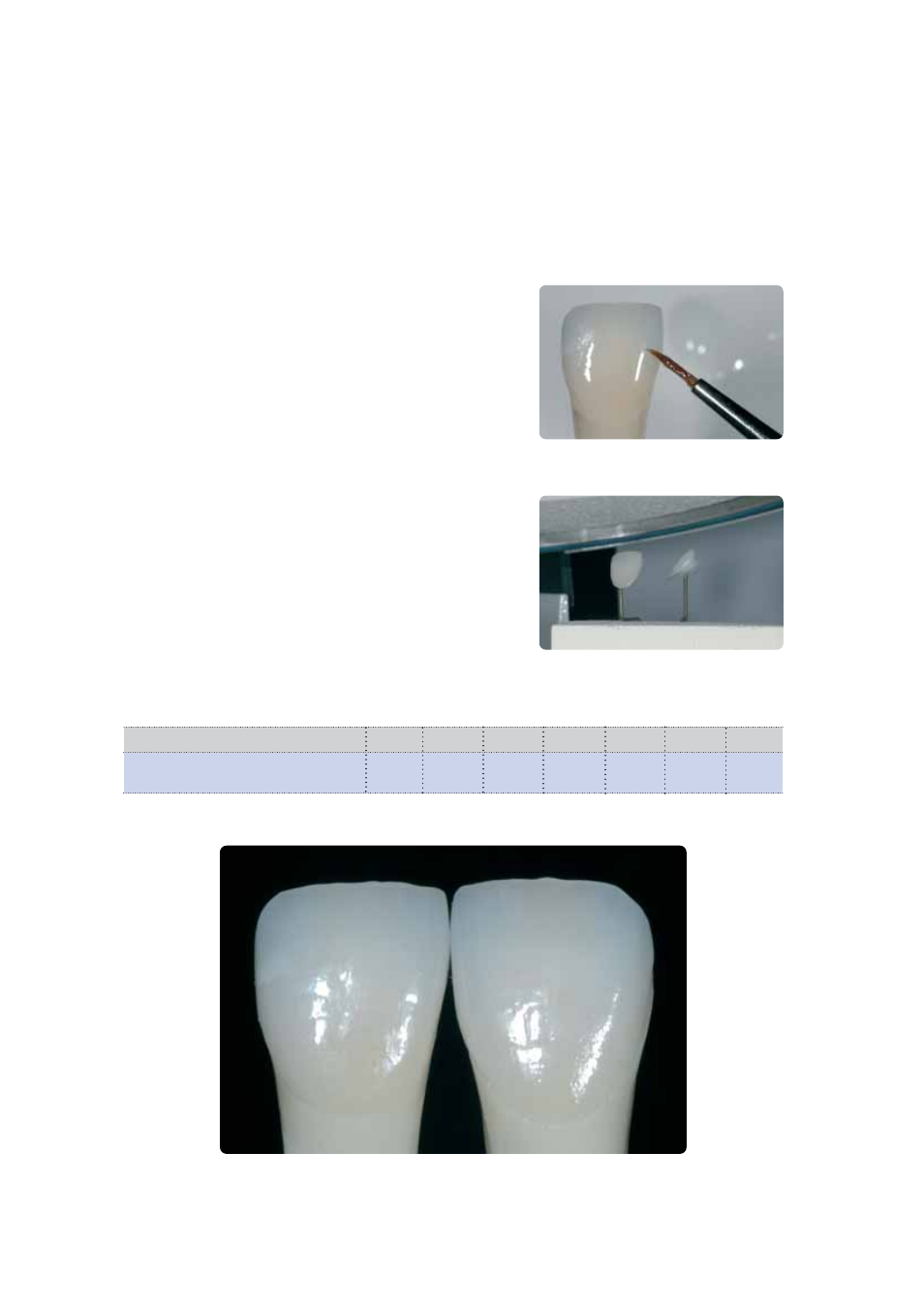Ivoclar Vivadent IPS Empress CAD Labside User Manual
Page 28

28
Glaze firing with IPS Empress Universal Glaze
Once the desired shade has been achieved and the individualized characterizations completed, the glaze firing is
conducted. Observe the following working procedure::
– Extrude IPS Universal Glazing Paste from the syringe and mix thoroughly.
– Thin the material to the desired consistency using IPS Empress Universal
Glaze and Stain Liquid. Do not excessively dilute the material, since this
may render the glazing procedure difficult to control.
– Apply the glazing material on the entire outer surfaces of the restoration.
– The glazing material must not come into contact with the inner aspects
of the restoration.
– Avoid pooling and excessively thick glazing material layers.
– Excessively thin glazing material layers result in an unsatisfactory gloss.
– The objects are positioned on the honey-comb firing tray same as for
the previous firing procedure.
– Then, the glaze firing is conducted in a compatible ceramic furnace
(e.g. Programat P500).
– If the gloss is unsatisfactory after the first glaze firing, further glaze
firing procedures may be conducted using the same firing parameters.
Place the objects on the honey-comb firing tray and start
the firing program.
Evenly apply the glazing material on the entire outer surfaces
of the restoration.
IPS Empress CAD with IPS Empress Universal
B
S
t
➚
T H
V
1
V
2
Glaze firing
403°C
6'
100°C
790°C
1–2'
450°C
789°C
757°F
6'
180°F
1454°F
1–2'
842°F
1453°F
Firing parameters for the glaze firing
(note the temperature control)
Completed, stained, and glazed IPS Empress CAD crown and veneer.
